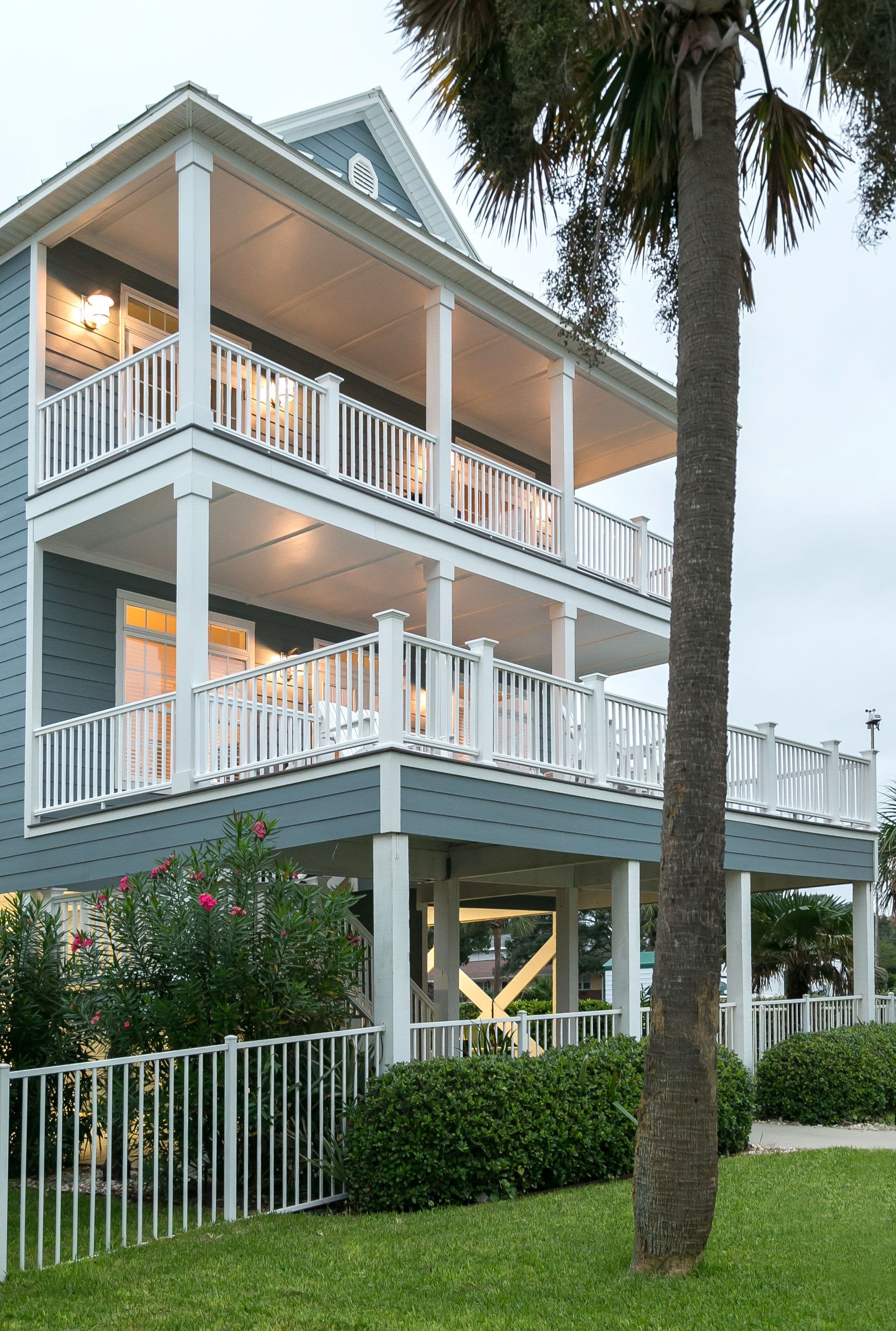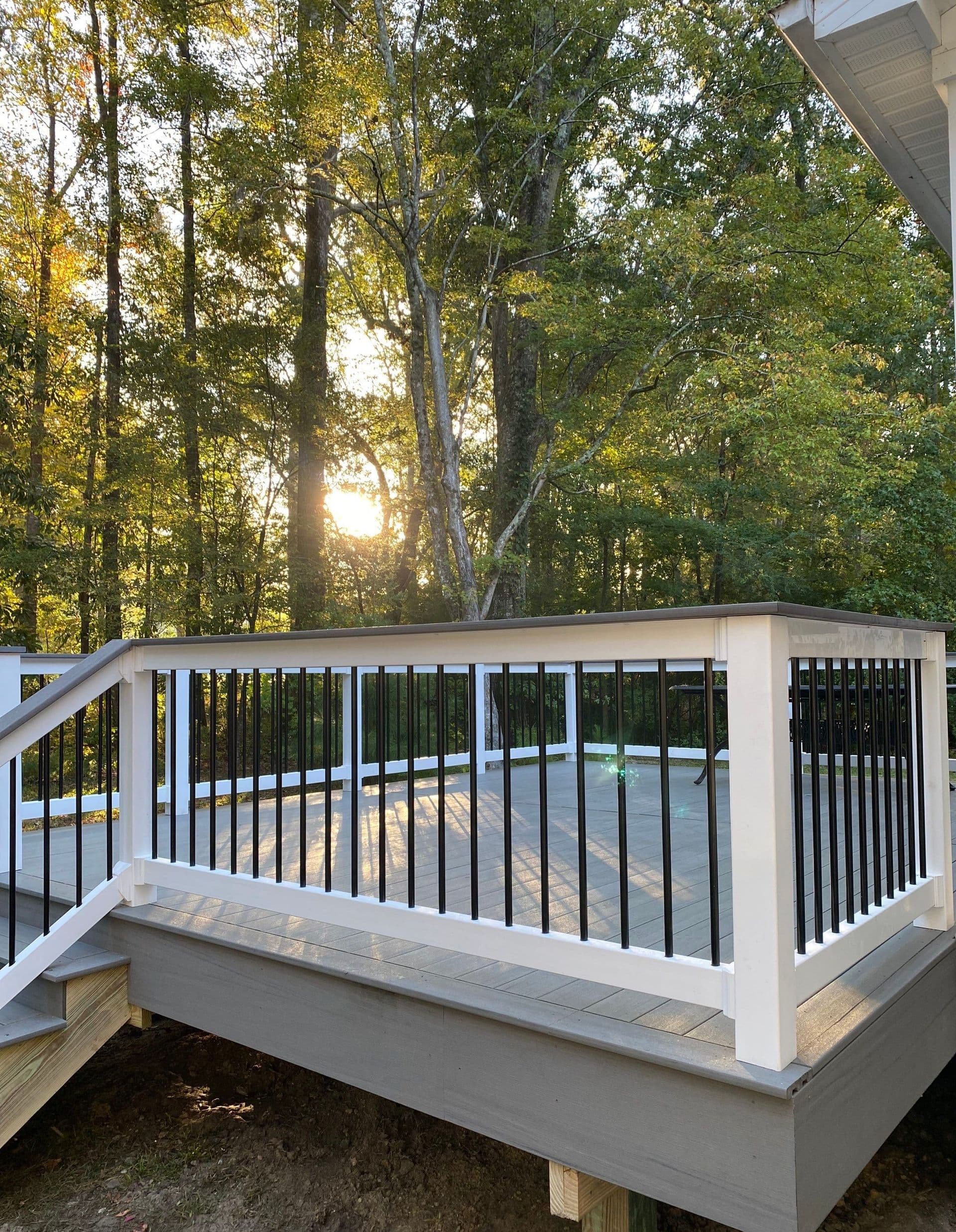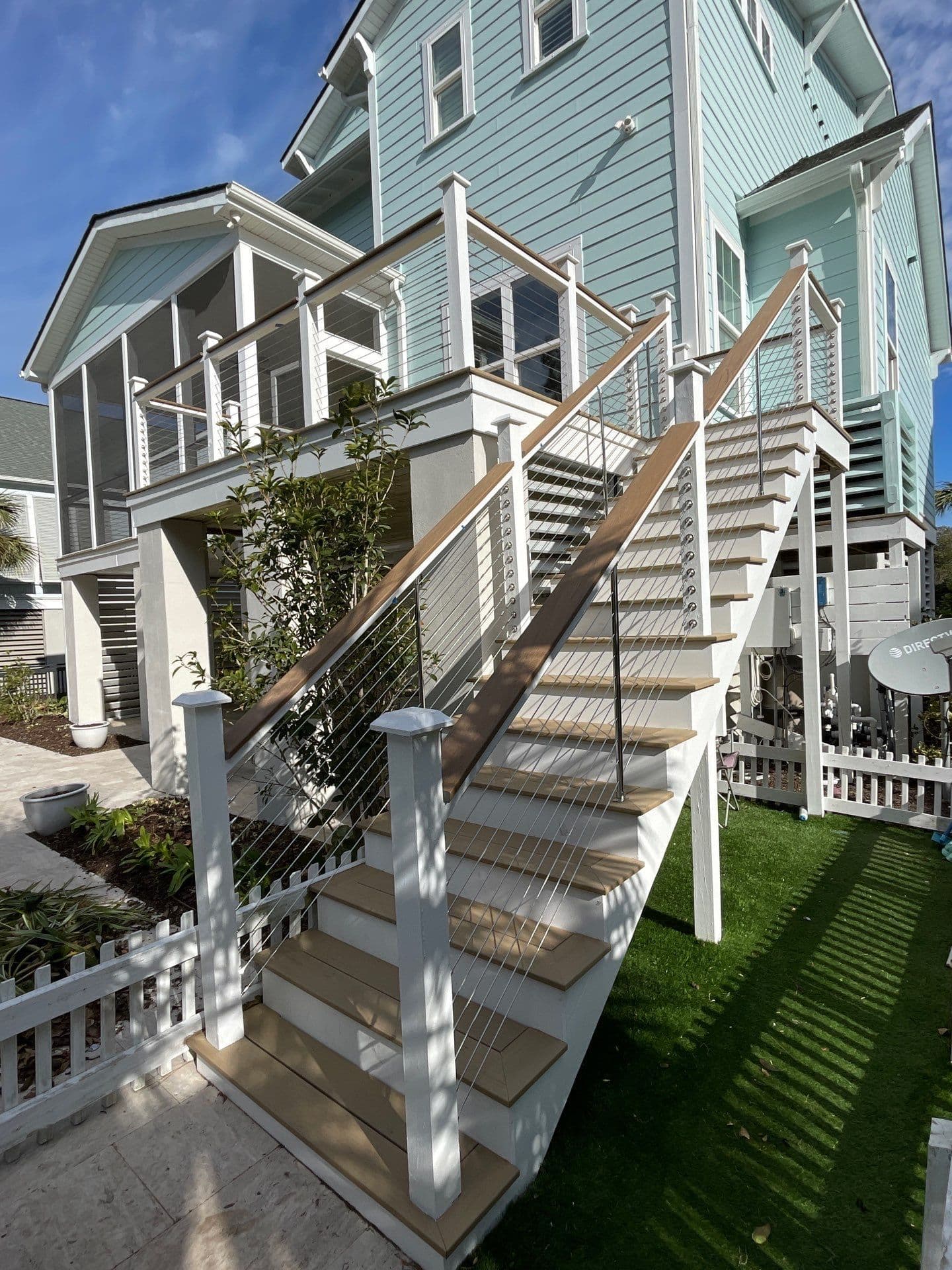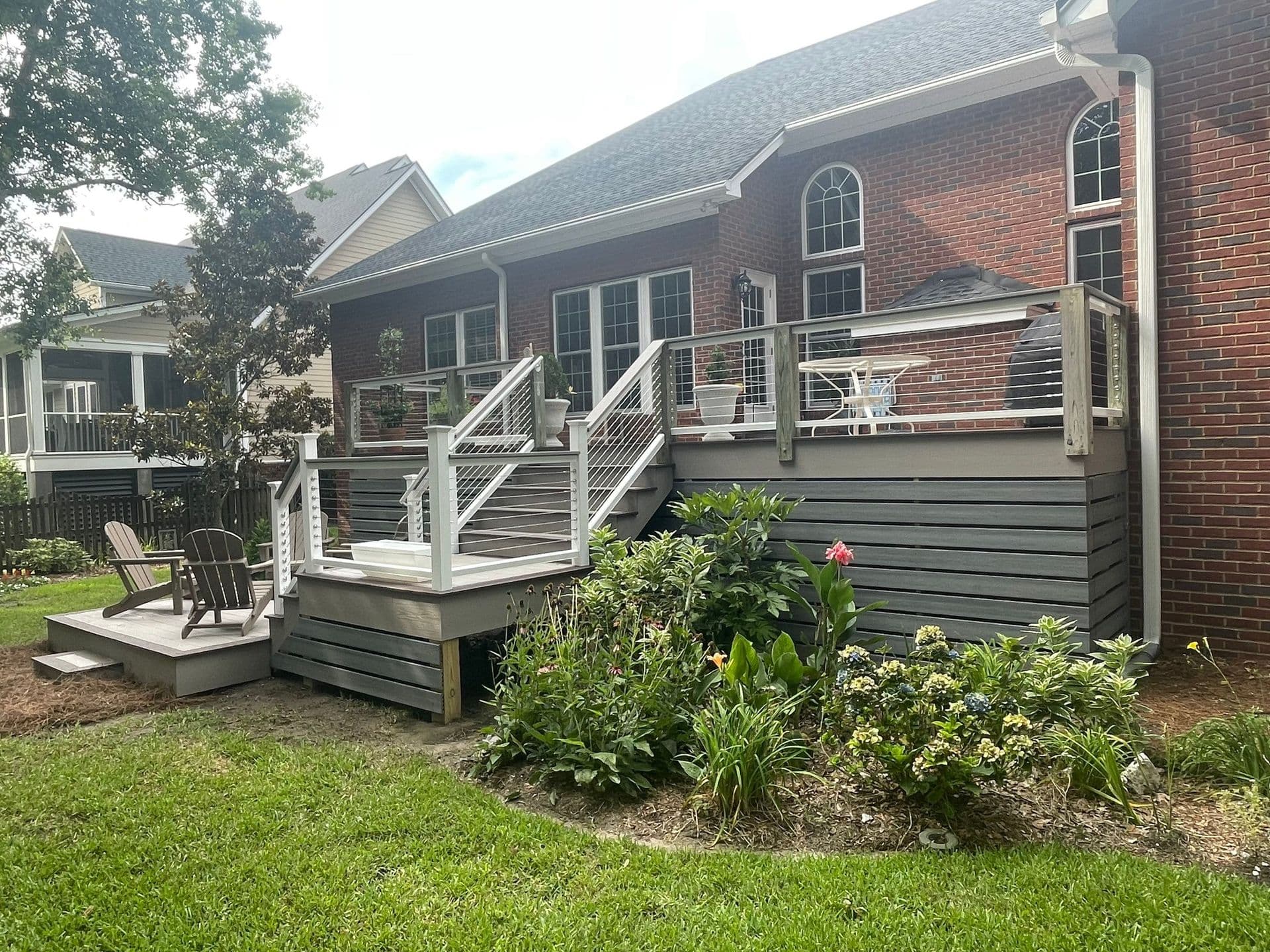7 Easy Ways to Void Your Warranties

Paul Simon once insisted there are 50 ways to leave your lover. It’s a great song, and his assertion may or may not be true, but there are definitely many ways to sabotage anything in your life– including your roofing and siding warranties
As Charleston contractors, we deal with roofing, siding, decks, windows, doors, and everything else on the outside of your home. Warranties come up pretty often in our line of work, and there are very few things that stress homeowners out quite like warranties.
By necessity, warranties are long documents, sometimes in the 20-50 page range. Who can remember all of those details? When you undertake a DIY project on the outside of your home, or even hire a contractor for additional work, re-reading your warranty is often the last thing on your mind.
Unfortunately, that’s where trouble starts. When you don’t know the specifics of your warranty, or when you act with total disregard for your warranty, you open yourself up to lost money and heartache.
Here are the most common problems we see that lead to voided warranties.
- Poor Roof Ventilation
Just like children, pets, and summer clothing, a roof needs to breathe. When you’re thinking about your roof, you probably think of leaks, wind, gunk in your gutters, rain, and other weather effects. We can’t blame you for that. But if your roof isn’t ventilated properly, it can void your warranty.
On a post over at Angie’s List, construction veteran Andy Lindus says:
“A roofing ventilation system works by pulling in air from intake vents that are placed on the lower part of the roof. The outside air that’s taken in disperses through higher parts of the roof. Inadequate venting causes moisture and heat to get trapped in your attic.
Additional heat on the bottom side of shingles can cause them to wear prematurely and fade. It’s important to have proper ventilation, which regulates the intake and outtake of air in your attic and keeps your shingles at an ideal temperature.”
If poor ventilation is wearing out your shingles, your warranty probably won’t cover replacement, at least on the manufacturer side.
Before you install a new or replacement roof, we recommend talking with your contractor about ventilation. A good Charleston roofing contractor should be able to find trouble before it starts.
2.Improper Installation
Manufacturers who produce roofing and siding materials are strict when it comes to installation and warranties. After all, why should they soak up the damage when a contractor doesn’t do a proper job?
Manufacturers usually produce detailed warranties for their siding and roofing, which can be specific enough to even mention the length of nails used on each shingle.
Using old or improper decking with a new or replacement roof can also void a warranty. Some types of decking aren’t approved by the manufacturer for certain types of roofing.
Manufacturer warranties don’t usually cover improperly fastened siding or shingles, either. It’s all in the workmanship.
Before you start a project, make sure your contractor understands the manufacturer warranty and explains it to you in detail. Likewise, they should answer all of your questions on the workmanship warranty.
If you have to go after a shady contractor after your manufacturer’s warranty is voided, you likely won’t be pleased with the results. A good contractor is a person who answers all of your questions about every warranty involved in your project, and also takes the extra time to go over the warranty with you before and after installation.
3.Antennas, Solar Panels, Skylights, and Satellite Dishes
Antennas and satellite dishes are great. We all love watching television, watching movies, and participating in our favorite hobbies. A nice skylight can tie a room together and make your home one step closer to your own personal paradise. Likewise, solar panels can reduce energy consumption and save you money on your power bill. But they all have one thing in common– installing them might void your warranty.
Installing these various add-ons usually requires drilling holes, and your TV provider or solar contractor might not care about your roof’s warranty. If your roof leaks because someone drilled a hole in it, it probably voids at least part of your warranty. And you won’t find too many contractors or manufacturers who are too sympathetic after you or someone else ruins their work by drilling holes.
If you want a satellite dish, skylight, or solar panel, you’re not out of luck. You just need to understand your warranty and work with your roofer and add-on installer to make sure you won’t void out the warranty.
If you already work with a great roofer, they’ll be more than happy to coordinate with any new contractor involved with your home improvements. Not voiding your warranty requires more work from a logistical standpoint, but it’s worth it to keep your protection intact.
4.Pressure Washing
When there’s dirt, grease, salt buildup, bird droppings, moss, or anything unsightly affecting your deck, roof, or siding, it’s tempting to break out the pressure washer. After all, nothing gets the job done faster– and it’s cathartic to spray all of your troubles away.
Pressure washers can cause problems themselves, though. Improper use, or even proper use, can result in marks, divots, or even holes left on the outside of your home. Those marks and divots aren’t aesthetically pleasing, to say the least, but they can also result in damage that lets the elements into your home.
Again, you might not find too much sympathy from your manufacturer’s warranty.
We’re Charleston contractors, we understand the challenges the city’s climate presents to homeowners. If you need to clean something unsightly from the exterior of your home, call your roofing, siding, or deck contractor– they should have suggestions that don’t involve voiding your warranty. If they value your business, they should happily answer all of your questions.
5.Installing the New Over the Old
Your warranty might shorten considerably, or be voided entirely, if you install a new roof or new siding over even some of your old exterior materials.
Shingles don’t play well with other shingles when it comes to layering. Two layers of shingles hold heat longer, which can lead to bunching; resulting in unsightly bulges. While all roofs and all siding experience wear and tear, that wear becomes uneven if new materials are installed over the old ones.
Experienced roofing and siding contractors know the value of doing the job right the first time. If you plan on hiring a roofer or a sider, always ask them what they plan on doing with the old materials. And, as always, go over your warranties with them.
6.Poor Maintenance
Most warranties lay out maintenance recommendations, but some siding and roofing warranties actually require you to perform maintenance on your home. Regular maintenance and upkeep are good practices to follow, but ignoring those tasks might do more than just make for an unsightly, less-efficient home– it might void your warranty.
Discuss your warranty with your contractor and make a list of maintenance tasks. Write down a list and, if you need to, schedule those tasks in your Google calendar or cell phone calendar.
If a contractor helps you with repairs or maintenance, save the paperwork. Also keep track of inspections. That way you’ll have a paper trail that proves you followed your warranty.
Know your warranty’s maintenance requirements, follow them, and keep track of them. If you’re uncomfortable performing a maintenance task, call a trusted professional.
7.Hiring an Unlicensed Contractor
As a homeowner, you should never let a contractor without a license slip under your radar. They’re more likely to do shoddy work, go over budget, leave a mess, and disappear when you have a complaint. But they can also void your warranty.
A license is proof that a contractor meets roofing and siding quality standards. It’s proof they understand building codes. Perhaps even more importantly, it’s proof that they care about their job.
Manufacturers understand all of this. Oftentimes, hiring an unlicensed contractor to perform repairs or installations will void your warranty. Manufacturers don’t want to deal with, or pay for, mistakes from undertrained and under qualified contractors.
Consult your warranty, of course, but also verify your contractor’s licensing status.
Warranties are helpful when unforeseen troubles come along. They can also ease the burden of normal wear and tear on your home. As long as you understand your warranties, and your Charleston contractor answers all of your questions, you should have nothing to fear.
Warranties should be a good thing, right? They are as long as you understand them properly.
If you’re ready to work with a Charleston roofer and contractor that stands behind their work, give Contract Exteriors a call today!
Premeditated Excellence
Randy Hann
Latest Home Owner Trends & Resources
A well-maintained deck isn’t just about curb appeal—it’s about safety, comfort, and increasing the value of your Summerville home. But when your outdoor space starts showing wear, how do you know if it’s time for a full replacement or...
Are you budgeting for a new deck installation at your South Carolina home? The weather in coastal areas can be brutal on your home’s outdoor surfaces...
Decks in Carolina Forest, SC, face more wear and tear than most. Between coastal humidity, salty air, and strong seasonal storms, outdoor structures in this area age quickly and sometimes unexpectedly...




